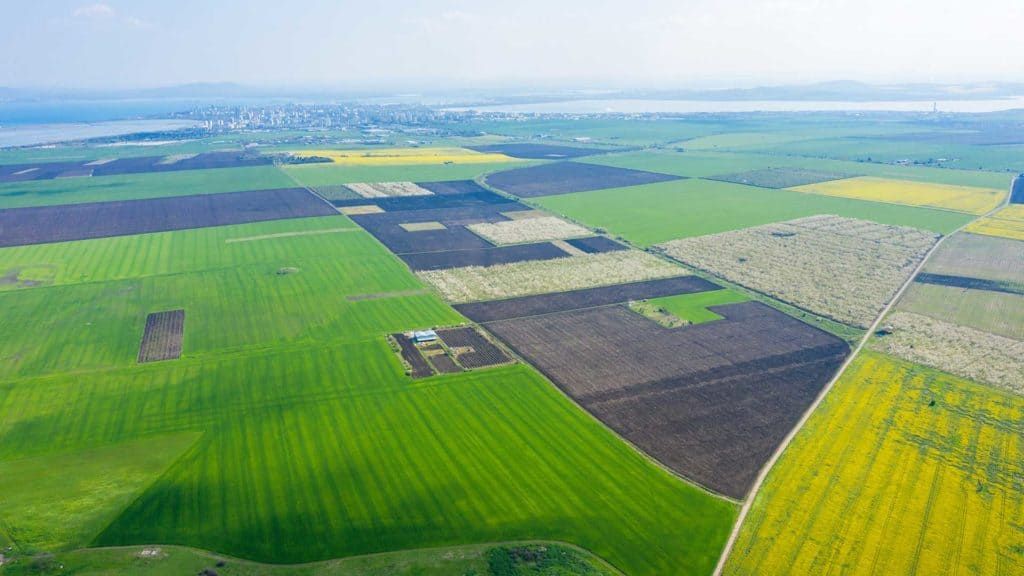Essential Guide to Modernizing the Land Department – Part 1

Part 1 – What Energy Companies Need to Look Like in the Future
As land leaders think about the strategies needed to navigate the complexities of today and tomorrow, multiple business priorities are top of mind, including how to maximize asset base, drive data-driven decisions, and contain G&A costs. Technology thought leader and CEO of ThoughtTrace, Nick Vandivere, has teamed up with W Energy Software to provide his valuable perspective on the tough challenges facing the land department and how to future proof energy companies with artificial intelligence, automation, and a single version of the truth, increasing business agility, reducing costs, and improving free cash flow.
By Nick Vandivere, CEO at ThoughtTrace
When it comes to capital expenditure and what Wall Street is looking for these days, generating cash flow is more important than reserves. This shift in emphasis from growth to shareholder value sets the tone going forward yet many land teams are stuck in a reactive mindset where daily decisions about what acreage to develop and sites to select from drilling inventory are clouded by poor access to reliable data, staggeringly large data volumes, and manual workflows. Instead, land teams need to shift into proactive mode bolstered by technology and a data-driven culture that create a clear view of contractual obligations at the wellhead and integrates business intelligence into day-to-day processes. Do you have the right tools for the job?
As an industry, we just haven’t talked enough about what energy companies need to look like going forward, the topic of my first blog post in a series all about modernizing the land department. The next few blogs will share key strategies for directly uplifting profitability leveraging data-driven asset optimization, hitting higher targets with the resources you already have, and navigating the energy transition backed by solutions to solve the “big reading problem.” I hope you find my point of view valuable and impactful on your land team’s productivity.
Creating a Digital First Culture
Volatile commodity prices that render basins unprofitable overnight, growing emphasis on ESG, and fierce competition for acreage have created a catalyst for change, and energy companies will need to look very different in the future to survive and thrive. In an industry that historically responds to growth by adding people and to downturns with layoffs, the energy company of the future is one that is digitally enabled and agile, empowering teams to do more without adding headcount. The land department is at the digital center, a hub and spoke model of the modern oil & gas enterprise.
The new energy enterprise is managed by people who not only understand land and lease complexities, but also the technology side and how to extract value from the digital oilfield. The big crew shift is well underway as a generation of energy professionals retires and a new, digital first-generation leads the way ahead. They are sharp, progressive thinkers who don’t want to be held back by antiquated technology. And they expect answers in minutes, not days or weeks.
Understanding how your team can create better data is part of the solution. You also need to know how to create a data-driven culture that attracts the progressive generation. There are only two paths to take, one that positions oil & gas companies to excel with a lean, digitally-enabled team and one that strands organizations with underpowered capability, innovators vs. digital laggards.
Future-Proofing with the Right Technology
Leveraging artificial intelligence to automate lease analysis, navigating big data, and getting answers from vast volumes of land records – these are the new digital skillsets that can make or break a company going forward. The right technology choices will future-proof the land department, allowing teams to confidently move forward with the digital capabilities and skills required to meet evolving business and market conditions head-on.
The energy company of the future will instantly construct very elegant solutions to complex business processes and also scale in crazy ways, such as importing 40,000 contracts at 8:00 in the morning then interrogating that data for answers before lunch. Software shouldn’t stand in the way of the answers your team needs.
Getting Answers from Big Data
Amazon shoppers and land teams share a common big data challenge where tens of thousands and even millions of records must be rapidly accessed, searched, and relevant results presented. Like shopping on Amazon, navigating to answers about your acreage should be as easy as picking your category, oil & gas leases in our case, then filtering on tracts, assignments, and Pugh clauses that meet your criteria.
One of the most important traits that will define energy companies and the land department going forward is how we ask questions of our data. We need to pivot away from only answering one-off questions and augment our knowledge with a more dynamic situation where we train our systems to continuously pay attention to the risks we need to care about. Instead of answering one-off questions about your acreage (whose answers have a limited shelf life) organizations need a persistent line of inquiry that constantly looks for new answers about certain royalties, leases held by production, and other contractual obligations. The upshot is that land teams can monitor their acreage by exception and jump in the decision loop only when action is needed.
Now that I’ve shown you what I think the energy company of the future needs to look like, my next blog will explain how a savvy, digital-first culture can reap big rewards through asset optimization that drops more revenue to the bottom line.
This is Part – 1 of our guest blog series: Essential Guide to Modernizing the Land Department.
 |
Nick Vandivere serves as CEO of ThoughtTrace. During his tenure, he has led the transformation of ThoughtTrace into a company that is a technology and thought leader for the application of applied artificial intelligence and machine learning. As a software CEO, Mr. Vandivere believes that product innovation, reliability, and an outstanding user experience are the required ingredients for exceptional performance and long term value. Mr. Vandivere joined ThoughtTrace in 2010 as Director of Business Development. Prior to joining the company, he served as an officer in the US Army and later in an advisory role with the US Department of State. Mr. Vandivere holds a Bachelor of Science degree in Economics from Texas A&M University.. |